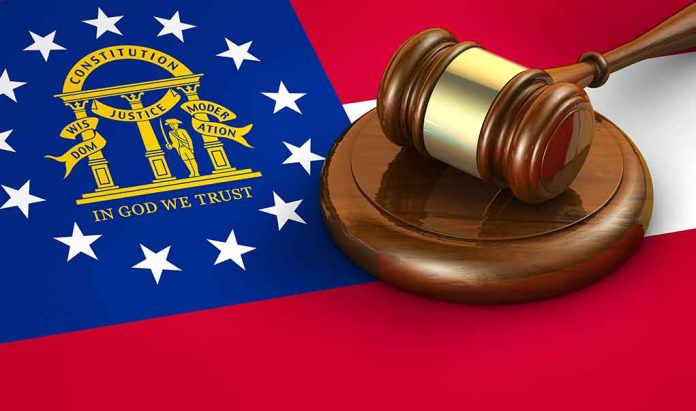
A federal judge strikes down a key provision of Texas’s controversial election law, citing Constitutional concerns.
At a Glance
- U.S. District Judge Xavier Rodriguez ruled a section of Texas’s Senate Bill 1 violates the Fourteenth Amendment
- The blocked provision allowed broad “vote harvesting” investigations, raising voter suppression concerns
- The law authorized criminal penalties, including potential 10-year jail sentences, for certain voter outreach activities
- Voting rights advocates praised the decision as a victory for fair voting practices
- The ruling prevents the Texas Attorney General’s office from conducting raids on voting rights activists
Federal Judge Halts Controversial Texas Voting Law
In a significant ruling for election integrity, U.S. District Judge Xavier Rodriguez has struck down a key provision of Texas’s Senate Bill 1, citing its violation of the Fourteenth Amendment. The decision effectively halts the state’s ability to conduct potentially unconstitutional “vote harvesting” investigations, which some argued could unfairly target certain communities.
The ruling comes after a six-week bench trial involving multiple voting and civil rights groups and the U.S. Department of Justice. It focused on the law’s adverse impacts on voters of color, voters with disabilities, and older voters.
Implications of the Ruling
Judge Rodriguez deemed the canvassing restrictions in Senate Bill 1 “unconstitutionally vague.” This provision had allowed for broad investigations into alleged “vote harvesting,” raising concerns about potential voter suppression. The law had authorized criminal penalties, including potential 10-year jail sentences, for certain voter outreach activities.
The ruling prevents the Texas Attorney General’s office from conducting raids on voting rights activists under the guise of “vote harvesting” investigations. This decision has been hailed as a victory for fair voting practices by various advocacy groups, including the Texas League of United Latin American Citizens (LULAC).
Judge Rodriguez enjoined this section of Texas election law, enacted in 2021 to ban PAID vote harvesting—a business that too often crosses into illegal assistance/influence and fraud.
Plaintiffs are orgs on the political left wanting to protect their harvesting business… https://t.co/sttd3uxxTH pic.twitter.com/y5sDTYuckL
— Erin Anderson (@TrueTexasTea) September 29, 2024
Reactions to the Decision
Voting rights advocates and legal experts have praised Judge Rodriguez’s decision. The ACLU of Texas celebrated the ruling, stating it as “a win for voting rights in the state, and for the organizations that help keep elections accessible.”
“Today’s ruling means that voter outreach organizers and other advocates in Texas can speak to mail ballot voters about issues on the ballot and urge voters to support improvements to their communities.” Nina Perales wrote.
Thomas A. Saenz, MALDEF President and General Counsel, strongly criticized Texas leaders’ efforts to deter voter participation, calling it “a wholly anti-democratic misuse of government power.” He expressed hope that this decision would lead to further protective action for voters and reinforce the right to cast a ballot in the upcoming November election.
Ongoing Debate Over Election Laws
This case highlights the ongoing tension between state efforts to regulate voting and the Constitutional protections that safeguard our democratic processes. While Republican proponents of Senate Bill 1 claimed it was necessary to ensure “election integrity,” critics argued that there was no evidence of widespread voter fraud to justify such measures.
The court still needs to rule on other challenged provisions of S.B. 1, keeping the debate over election laws active in Texas and nationally. As the country moves closer to the next election cycle, the outcome of this and similar cases will likely play a crucial role in shaping the landscape of voting rights and access across the United States.
Sources:
- Federal Judge Ruling Deals a Blow to Ken Paxton
- Texas can no longer investigate alleged cases of vote harvesting, federal judge says
- Federal Judge Ruling Deals a Blow to Ken Paxton
- MALDEF STATEMENT ON FEDERAL JUDGE’S DECISION TO BLOCK PART OF TEXAS’S VOTER SUPPRESSION LAW SB1
- Federal Judge Strikes Down Key Provision of Texas’ Omnibus Voter Suppression Law






